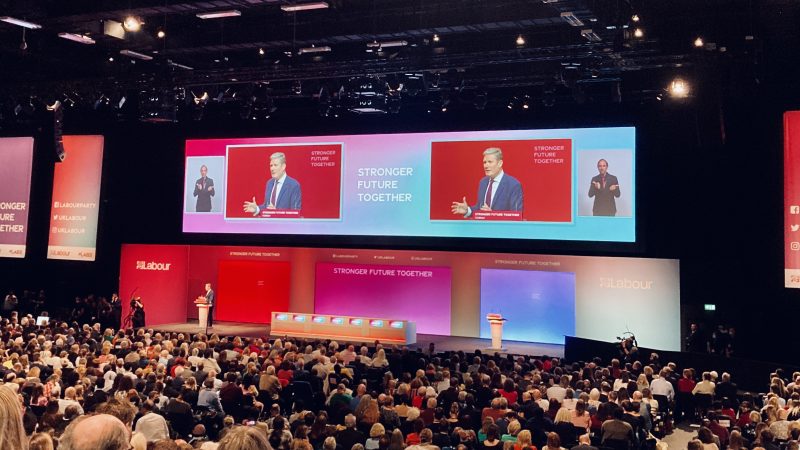
Labour conference 2022 is underway. The priorities ballot – which decides the topics to be discussed at conference – was dominated by motions proposed by the Keir Starmer-backing Labour to Win group, with Luke Akehurst claiming a clean sweep on the Constituency Labour Party (CLP) section of the ballot. Momentum noted, however, that conference delegates had voted to discuss motions that would mandate Labour to back public ownership of key sectors, inflation-proof pay rises, increasing the minimum wage to £15 per hour and introducing proportional representation (PR). Co-chair Hilary Schan declared following the results that the labour movement needs to unite behind a “bold alternative” to the Tory government, “based on fair pay, public ownership and democratic empowerment”.
Momentum’s ‘Labour for labour’ motion – teed up as a potential “showdown” between the left and the trade unions on one side and the Labour leadership on the other – may not have made it on to the ballot, but the workers’ pay motion, proposed by UNISON and voted through in the affiliated organisations section of the ballot, will see conference debate Labour committing to supporting pay rises for workers “at least in line with inflation” and the introduction of a £15 minimum wage.
Public ownership will be discussed as part of the growing challenges of our economy motion, proposed by Unite and also voted through in the affiliated organisations section. The motion would commit Labour to calling for a “new political and societal consensus”, to include backing “taking back control of essential services and utilities through new models of democratic and efficient public ownership”.
The Labour leadership will also face a challenge on its stance towards PR. Starmer declared over the weekend that the party’s manifesto would not include pledges on electoral reform, adding that it was “not a priority” for him. The electoral reform motion, voted through in the CLPs section of the ballot, will see conference debate committing Labour to introducing PR for general elections in the next manifesto and to changing the voting system for general elections to a form of PR in its first term in government.
Labour to Win also claimed victory on proposed rule changes. The five constitutional amendments put forward by Labour’s ruling national executive committee (NEC) passed. This included an amendment proposing that the requirement that CLPs submit constitutional amendments to conference a year beforehand be reinstated. The rule was abolished under Corbyn’s leadership, and the proposed amendment was not well received on the left of the party. Referencing Keir Starmer’s last-minute proposals for Labour’s conference in 2021, a Momentum spokesperson said it “beggars belief that this rule change would force members to propose rule changes well over a year in advance of debate”.
All of the three constitutional amendments proposed by CLPs and affiliates that were put to a vote were rejected, as recommended by the NEC. The debate focused primarily on card vote six, which would have allowed Jeremy Corbyn to stand again as a Labour candidate at the next general election. Presenting the proposal to conference, Peter Talbot, a representative of Corbyn’s CLP Islington North, said not allowing the former Labour leader to stand would be a “disaster” and a “gift to the Greens, to the Lib Dems and the Tories”. The proposal was rejected by delegates along with other constitutional amendments calling for CLPs to regain control of longlisting in parliamentary selection processes and for lobbyists and property developers to be blocked from running for selection for Labour at any level.
Sign up to LabourList’s morning email for everything Labour, every weekday morning.



More from LabourList
Turning the page? Labour’s recovery in the polls show a path to 2029 victory
Restoration announce recommendations for NEC candidates
‘Factionalism at the top is weakening Labour – and handing a gift to Reform’